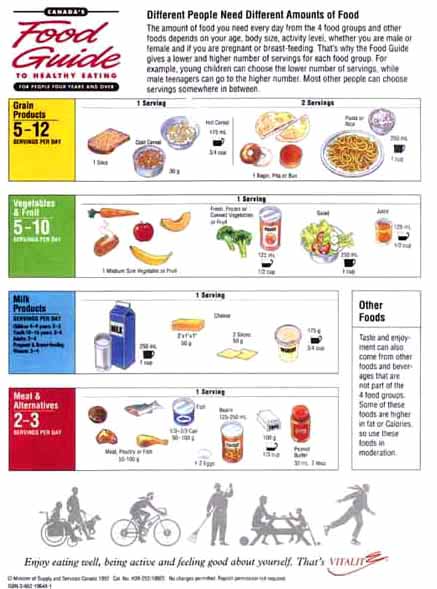Eating Well, the Definition of Proper Nutrition
Jacqueline Todorov
Eating Well.
What lies behind this age old saying? Pause for a moment to think what that means to you.
If you are a mother of 10 children it likely means that there is enough to go around and no one leaves the table hungry. If you are single it perhaps means that you have scraped enough money to eat in decent restaurant at lunch intead of brown-bagging it. To children it may mean a hot dog, fries, and a pop. To the elderly, it may mean a bit more than tea and toast for breakfast. To the sick, eating well is anything that wasn't served on a hospital tray!
Eating well can be interpreted in many different ways by many different people. Eating well is a personal, subjective definition.
What eating well should mean to all of us is ensuring that we have all of the protein, carbohydrates, fats, vitamins and minerals that our body needs to stay as healthy and disease free as possible.
Food is the fuel of people. With low grade fuel you get low grade performance. Feed your body well and it will work well and your 'maintenance' costs (health problems) will go down. Unlike a car, your body cannot be left in the driveway for a year until you can afford to have the brakes and muffler fixed. You cannot have it towed to the local dump and buy a new one.
We need to water it, and feed it and pamper it.
Junk food once in a while (contrary to popular belief) will not harm you! If, however, you eat a diet that is lacking in the vital nutrients, as junk food typically is, your body will begin to show signs of neglect and abuse. Eating properly, according to a recomended diet such as the Canada Food Guide will go a long way towards keeping you and your body feeling well and working well.
Teaching your children to eat well is one of the best ways to keep them healthy for life. The four main food groups of: Fruits and vegetables, meats and other protein sources, breads and cereals, and milk and dairy products are needed to provide good bones, muscles, eyes, ears and noses. Proper nutrition builds up the immune system so that it can fight germ invaders effectively. Kids who don't eat well don't grow well and get sick more often, and stay sick longer that kids who do eat a balanced diet. Look at what your children eat and provide what they need to grow.
If you buy junk, the kids will eat junk.
If you buy healthy, the kids will eat healthy.
You as the parents are the gatekeepers to your childrens mouths. Use this opportunity and power well. If you are bored with cooking, or think that you can't provide a varied diet because you are not a wonder cook, buy or borrow form the library a cook book for beginners and try a few different recipes. It doesn't have to cost much to provide good food (Editor's Note: It's actually cheaper) and the fun in getting your kids to help will be worth the effort in the short term and in the long term. Cooking doesn't always have to be a chore. Tacos, homemade pizza, stuffed baked potatoes, meatballs, and stir-fries are fun!
Children do go on food jags where they will only eat certain food all the time for days. If you evaluate your children's diet on a weekly basis rather than a daily basis you would get a better picture of what parts of their diet need to be imporoved.
Eating well is all of these things. Achieving a balance in what you and your family eat, providing variety, and above all, having fun!
(Follow-up Editor's Note:
Fruit, even off-season fruit carefully chosen, is cheaper than cookies, because one piece of fruit will fill you up as much as a large handful of cookies, it's better nutrition and lower calories too!
Vegetables, fresh salads in the summer and root vegetables and other long storage vegetables in the winter (try them oven-roasted with a sprinkling of olive oil and balsamic vinegar, salt, and pepper) are also cheaper that snack food, canned vegetables, and worth the money because they fill up a meal that is 'skimping' on the meat like a stir-fry, provide vitamins and minerals, are low in calories and high in fiber.
North Americans typically eat too much meat. No-one 'needs' a 14 ounce steak! Peanut butter, lentils, beans in chili, soup, stew and other dishes, tofu, cheese and eggs in moderation are all nutritious, inexpensive protein alternatives to meat. It is possible to save a lot of money on this part of your food budget, freeing up money to buy more fruits and vegetables and dairy products. )
To learn more, go to The Canada Food Guide: Healthy Eating

Return to Health Page.